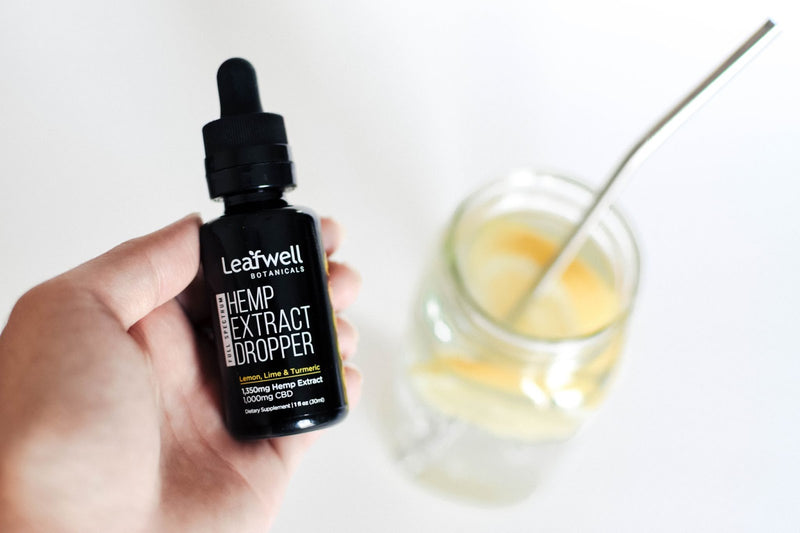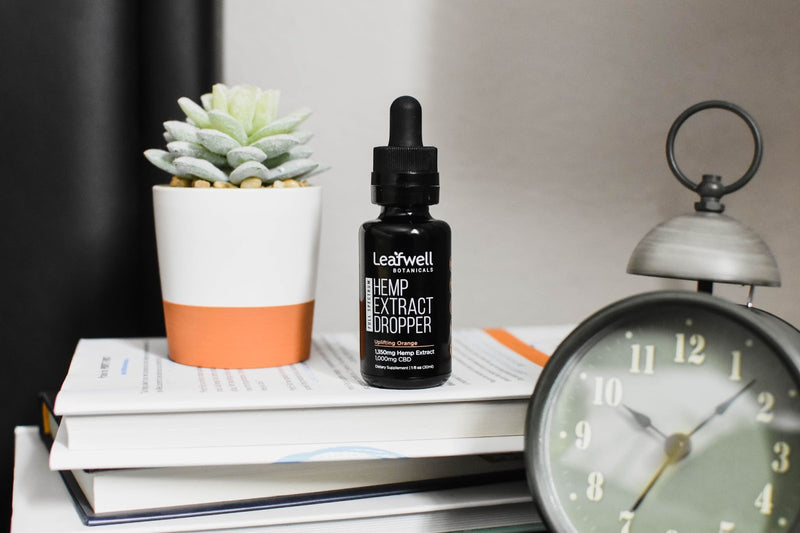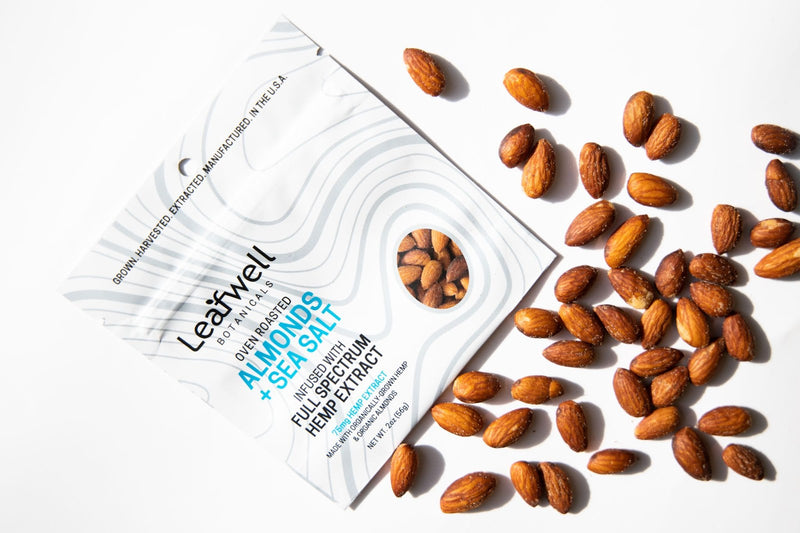MCT Oil vs. Coconut Oil: What’s the Difference?

Chances are, you have heard of all the potential benefits of coconut oil, and maybe even you use it in your day to day life. It is trendy, tasty, and growing more and more popular by the hour. Though the jury is still out as to whether or not coconut oil is a healthier alternative to, say, olive oil, there is no denying that coconut oil is making a name for itself in the world of fat.
So, what then is MCT oil? And what does it have to do with coconut oil? In fact, what does MCT even stand for?
By the end of this article you will understand exactly why MCT oil is so special, in addition to its relationship to coconut oil. You may even be surprised by the many ways MCT oil is used. For everything you need to know about MCTs, coconut oil, and MCT oil, read on!
MCTs vs. LCTs
Before we get to Medium Chain Triglyceride (MCT) oil and coconut oil, we first have to talk about fat. See, both of these oils are comprised of varying types of fats, but they are different from other types of oils in terms of the type of fat they contain. MCT oil, just by virtue of its name, clearly contains Medium Chain Fatty Acids, but coconut oil is also one of the best food sources available for MCTs.
So, what are MCTs, anyways? And how do they differ from long chain triglycerides (LCTs)?
LCTs and MCTs are both types of fat. LCTs are the much more common type of fat and are found in more foods than MCTs, including fish, meat, nuts, and avocados. However, MCTs are gaining more and more attention.
Within each triglyceride are three fatty acids and a molecule called glycerol. Triglycerides are a type of fat, and “medium” and “long” refer to the length of the fatty acids. MCTs have medium length fatty acids, meaning 6-12 carbon atoms, while the long-chain fatty acids found in LCTs have anywhere from 13 to 21 carbon atoms.
Though this scientific talk may sound a bit boring, it is actually really important in terms of describing the difference between MCTs and LCTs.
Because the length of the fatty acids in MCTs are shorter than those in LCTs, the body is able to break them down and absorb them much quicker, which means the body can use them more efficiently. This also makes MCTs an excellent carrier oil for oil soluble supplements such as cannabinoids and vitamins, among others.
When you consume fats, your body will either turn them into energy immediately or store them for later in the form of body fat. MCTs differ from LCTs in that they travel directly to the liver to be digested, where they will most likely be used for energy. There is less of a guarantee that LCT consumption will translate to energy production over body fat production because the digestive process is much more complicated and takes much longer as a result. Of course, if you eat too many MCTs your body still may store some of them as body fat.
There are four main MCTs:
- Caproic acid (C6)
- Caprylic acid (C8)
- Capric acid (C10)
- Lauric acid (C12)
The number in parentheses refers to the number of carbon atoms within each fatty acid. For example, caproic acid has only 6 carbon atoms per fatty acids. Since lauric acid is on the longer end, it tends to be digested the slowest of the four MCTs, and provides less of the benefits of MCTs. Lauric acid happens to be the MCT most prevalent in coconut oil. With that said, MCT Oil can be processed to not contain any Lauric acid, even if derived from coconut oil.
To summarize, MCTs have shorter fatty acid chains than LCTs, which means they can be digested, absorbed, and turned into energy much quicker than their long-chain counterparts. MCTs are found in both coconut oil and MCT oil.
What is Coconut Oil?
Coconut oil is one of the most popular and trendy sources of fat available. It has a distinct flavor and is a versatile ingredient to have in your kitchen--great for sautéing vegetables and making sauces. You can even use it as a moisturizer for your skin and hair.
As its name suggests, coconut oil is derived from coconut meat (the white fruit inside the husk). Coconut oil consists entirely of fat, the large majority of which is saturated fat. It also contains some unsaturated fat, though otherwise it has few additional nutrients. The most prevalent type of fatty acid within coconut oil is lauric acid, which you may remember from above as one of the four main MCTs.
Whether or not coconut oil is a healthy source of fat is still up for debate. For one, coconut oil has a larger saturated fat content than even butter and lard (close to 90%), and while saturated fat is not as unhealthy as trans fat, it is still something you should limit your consumption of as much as possible.
For example, the American Heart Association recommends that you eat no more than 13 grams, or 120 calories, of saturated fat per day (based on a 2,000 calorie diet). This is because excess saturated fat helps raise LDL (“bad”) cholesterol levels and has been shown to increase your risk of cardiovascular issues. Since there are 12 grams of saturated fat in just one tablespoon of coconut oil, you have to be mindful with your serving size and frequency of use.
In addition, we have already discussed the benefits of MCTs’ shorter fatty acid chains, but lauric acid, the prevailing MCT in coconut oil, functions more like an LCT in terms of absorption time. Thus, coconut oil cannot truly claim all the benefits of MCTs like, say, MCT oil can.
All in all, coconut oil is great for cooking and skin/hair care, but you should consume it only in moderation due to its high saturated fat content.
What is MCT Oil?
In simple terms MCT oil is a supplement made up purely of medium-chain triglycerides. It comes from either coconut oil or palm kernel oil, both of which contain large amounts of MCTs. Some MCT oil supplements are made of 100% MCT, while others blend MCTs and LCTs. The MCT Oils we use are exclusively derived from coconut oil and only contain capric and caprylic acids.
The process of extracting MCT oil is called fractionation. MCTs are separated from the LCTs and other molecules in coconut or palm kernel oil to form the finished, strong product. Most MCT oils primarily contain caprylic acid (8 carbon atoms) and capric acid (10 carbon atoms), both of which are absorbed quickly.
You can take MCT oil for a variety of reasons. For one, people that have issues with absorbing fats and other nutrients may take an MCT oil supplement alongside other fat consumption, since the body can digest, absorb, and use MCTs more efficiently than long-chain triglycerides, the more prevalent type of dietary fat.
MCT oil may also be used as an energy booster, since the body is more likely to use MCTs as energy immediately since it goes directly to the liver to be processed rather than storing them as body fat like most other fats.
People on a low-carb keto diet, for example, believe that MCTs facilitate the production of ketones, which are byproducts of fat-burning. In the absence of carbohydrate-based glucose, the body burns its stored fat and then uses ketones for energy.
Finally, MCT oil functions as an excellent carrier oil due to its superior absorption rates.
CBD and MCT Oil: What is the Connection?
For many essential oils (food grade & topical), herbs, and supplements (like CBD oil) companies use carriers that serve as a vehicle to make the experience more enjoyable and easily measured, because in raw form, the supplements may be too concentrated. MCT oil is one of the most common carrier oils for CBD products because not only does it serve as a carrier, it’s incredibly good for you on its own.
MCT oil has a couple main functions as a carrier oil.
Firstly, CBD is fat soluble, so unless you use not so great emulsifiers it is only able to dissolve in fats like MCT oil (as opposed to water). MCT oil is also well-absorbed by the body, meaning the CBD oil it is transporting will also be absorbed efficiently.
The better the absorption of a supplement, the better its benefits will be. Though there is some nuance to this. As a blend of more efficient and less efficient absorption may help have quicker effects while the less efficient absorption will allow for longer lasting effects.
Also, CBD on its own may be too potent to easily measure a dose and the taste would be overwhelmingly bad for most without any dilution, so MCT oil as a carrier helps to dilute it and regulate each dose and dilute the strong flavor.
At Leafwell Botanicals, we use organic MCT oil as a carrier oil for all of our CBD products, from our tinctures to our CBD Peanut Butter. This ensures that you can get the most out of our products and support your overall health and wellness in the most efficient way. Additionally, given such a low amount needs to be taken the amount of saturated fat consumed is next to nothing.
TLDR; MCT oil is superior for absorbing fats, like CBD oil, while coconut oil is better for cooking (but keep in mind it’s high in saturated fat -- really high).
Firstly, coconut oil and MCT oil are similar in a few ways. MCT oil is usually derived from coconut oil (or palm kernel oil), which builds an obvious connection. Coconut oil and MCT oil are both rich in medium-chain triglycerides, and both have their own respective benefits.
However, there are major differences between coconut oil and MCT as well. For one, coconut oil and MCT oil differ in the type of fatty acids they contain. Coconut oil has large amounts of LCTs, lauric acid, an MCT that functions (absorption-wise) as an LCT. MCT oil, on the other hand, is purely comprised of medium-chain fatty acids that improve its absorption rate.
Coconut oil and MCT oil can both be used as carrier oils. MCT oil is the superior carrier oil, however, since the body can absorb it and use it better, which also means it can absorb and use whatever the MCT oil is “carrying” (CBD oil, say) better. MCT Oil is also easier to use than coconut oil because it’s liquid at room temperature while coconut oil is a solid.
Coconut oil is the better cooking option, especially thanks to its low smoke point, though you should consume it in moderation due to its high saturated fat content.
MCT oil is better for people that are looking for faster absorbing fats, those in need of support in absorbing fats. If you are looking to use MCT oil as a supplement, discuss your options with your doctor first to make sure that MCT oil is right for your needs. MCT Oil is also used in many oil based skin care products.
Sources
MCT Oil vs. Coconut Oil: What's the Difference? (healthline.com)
Should You Add MCT Oil to Your Diet? | Eat + Run | US News
Coconut Oil | The Nutrition Source | Harvard T.H. Chan School of Public Health
MCT Oil: Health Benefits and Common Uses (webmd.com)
MCT Oil 101: A Review of Medium-Chain Triglycerides (healthline.com)







